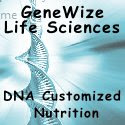Menopause is the time in a woman’s life when her ovaries stop releasing egg cells and menstruation ceases. At the same time, a woman’s body produces less estrogen and progesterone, the two main female hormones. This reduction in hormone levels may lead some women to experience bothersome symptoms such as hot flashes, vaginal dryness, insomnia, anxiety, and mood swings.
While these symptoms are the result of natural processes and can be relieved by natural remedies, along came the big pharmaceutical companies to make a disease out of menopause and as a result increase profits.
The first hormone replacement medication was the drug Premarin. This medication consists of horse estrogens taken from pregnant mares—hence the name PREgnant MARes urINe. The pregnant mares were usually kept in cramped conditions so they could be on a urine production line. The majority of the resulting foals were destined for people’s tables and sold for slaughter. Horse meat is a delicacy in some overseas market.
It has long been known that estrogen (both natural and synthetic) can increase the risk of certain cancers, yet these hormones continue to be prescribed by physicians. Estrogen has a direct effect on the uterine lining and is known to increase a woman’s risk of endometrial (uterine) cancer and some pre-cancerous conditions such as atypical hyperplasia. Estrogen can also increase the risk of breast cancer because of the effect of estrogen on breast tissue as well as development of potentially deadly blood clots.
Although the best course is to treat menopause as the natural body process that it is, if menopausal symptoms are intolerable, there are several natural therapies that can bring relief with minimal or no side effects. These therapies include black cohosh, red clover, and soy.
Black cohosh (also spelled cohash) has been used for many years as an effective alternative herbal treatment for menopausal symptoms. This herbal remedy has even gone mainstream. In 2001, the American College of Obstetricians and Gynecologists stated that based on consensus and expert opinion, black cohosh could be helpful for the symptoms of menopause. The pharmaceutical company, GlaxoSmithKline, now markets black cohosh, sold under the name Remifemin, as a treatment for the vasomotor symptoms of menopause (hot flashes, night sweats, irritability, etc.). Remifemin has been the subject of double blind, placebo controlled tests proving its effectiveness without causing the effect on breast tissue that estrogen can have.
Red clover and soy are two other supplements that can be beneficial for menopausal symptoms. Red clover is a source of both phytoestrogens and isoflavones which are plant estrogens which mimic human estrogen. This product is also marketed under the name Promensil and has been the subject of research studies proving its effectiveness. Soy products, available in both food and supplement form, also contain phytoestrogens and may provide some relief of menopausal symptoms.
For information on health benefits that are friendly to alternative medicine, visit my website at health plans plus.
Subscribe to:
Post Comments (Atom)









2 comments:
Hi!
Wanted you to know that Glaxo Smith Kline has not had Remifemin for several years, it's back with it's original distributer, Enzymatic Therapy. Your readers are invited to get a free sample of this safe, clincially tested unique form of black cohosh to help them get relief for a change!
Michele@remifemin.com
Thanks for bringing this to my attention.
Post a Comment